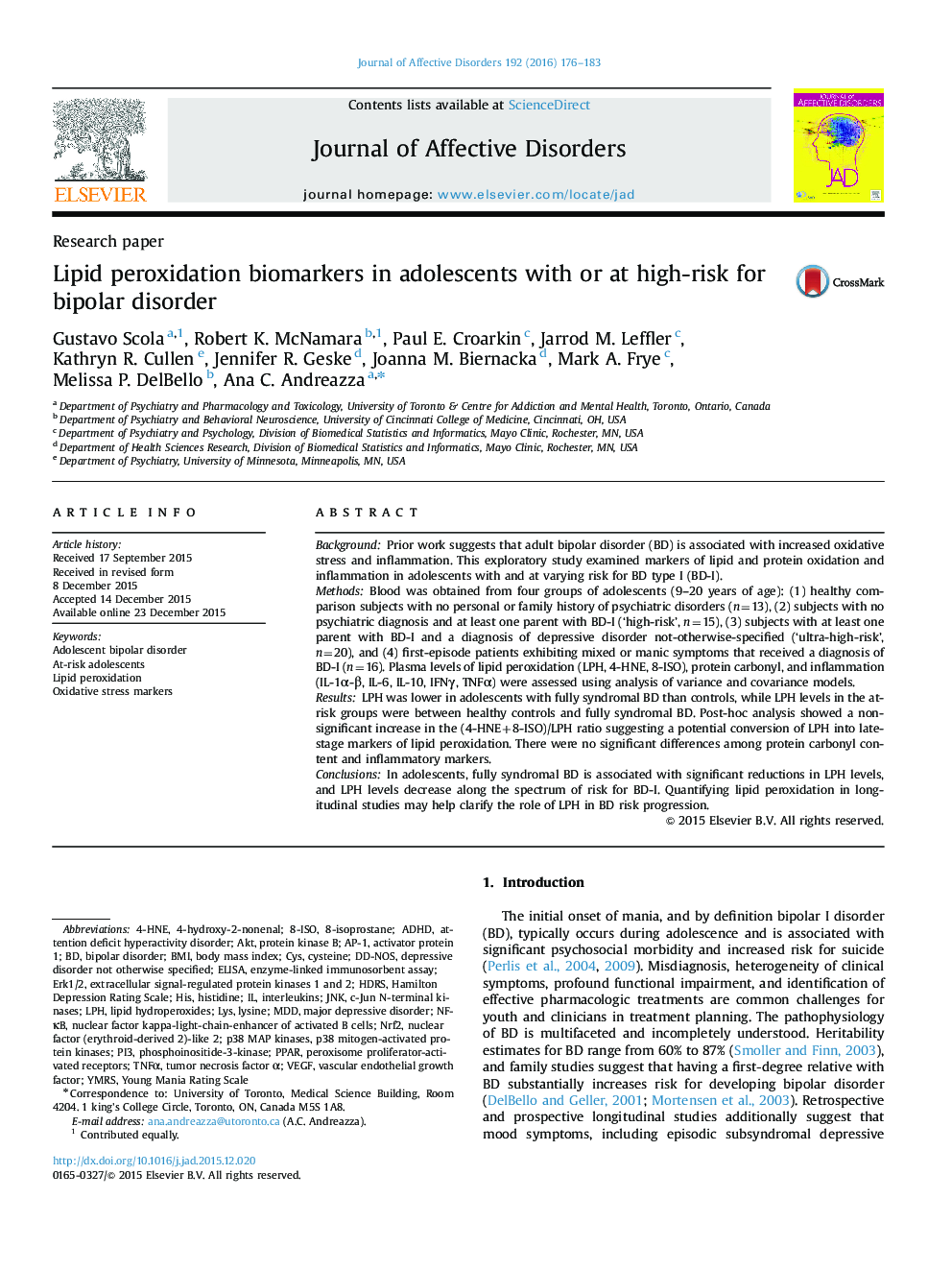| Article ID | Journal | Published Year | Pages | File Type |
|---|---|---|---|---|
| 6230626 | Journal of Affective Disorders | 2016 | 8 Pages |
â¢1st Episode adolescent BD is associated with reductions in LPH levels.â¢LPH might be converting into late-stage markers in 1st Episode for BD subjects.â¢Depression severity in adolescents (HAMD score) was correlated with LPH levels.
BackgroundPrior work suggests that adult bipolar disorder (BD) is associated with increased oxidative stress and inflammation. This exploratory study examined markers of lipid and protein oxidation and inflammation in adolescents with and at varying risk for BD type I (BD-I).MethodsBlood was obtained from four groups of adolescents (9-20 years of age): (1) healthy comparison subjects with no personal or family history of psychiatric disorders (n=13), (2) subjects with no psychiatric diagnosis and at least one parent with BD-I ('high-risk', n=15), (3) subjects with at least one parent with BD-I and a diagnosis of depressive disorder not-otherwise-specified ('ultra-high-risk', n=20), and (4) first-episode patients exhibiting mixed or manic symptoms that received a diagnosis of BD-I (n=16). Plasma levels of lipid peroxidation (LPH, 4-HNE, 8-ISO), protein carbonyl, and inflammation (IL-1α-β, IL-6, IL-10, IFNγ, TNFα) were assessed using analysis of variance and covariance models.ResultsLPH was lower in adolescents with fully syndromal BD than controls, while LPH levels in the at-risk groups were between healthy controls and fully syndromal BD. Post-hoc analysis showed a non-significant increase in the (4-HNE+8-ISO)/LPH ratio suggesting a potential conversion of LPH into late-stage markers of lipid peroxidation. There were no significant differences among protein carbonyl content and inflammatory markers.ConclusionsIn adolescents, fully syndromal BD is associated with significant reductions in LPH levels, and LPH levels decrease along the spectrum of risk for BD-I. Quantifying lipid peroxidation in longitudinal studies may help clarify the role of LPH in BD risk progression.
